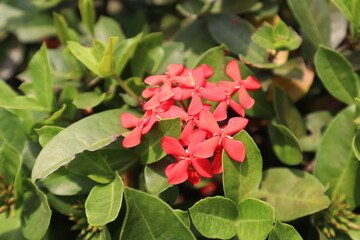The Wonders Of Ashok: An Ayurvedic Marvel

Ashok, scientifically known as Saraca asoca, is a revered tree in Ayurvedic medicine, celebrated for its numerous health benefits and therapeutic properties. This blog delves into the various aspects of Ashok, including its health benefits, the diseases it can help alleviate, methods of consumption, availability, risks, precautions, and additional insights into this remarkable product.

What is Ashok?
Ashok is a flowering tree native to the Indian subcontinent, often associated with fertility and well-being in traditional Indian culture. Its bark, leaves, and flowers are utilized in various Ayurvedic formulations, making it a staple in holistic health practices.

Health Benefits of Ashok
Menstrual Health: Ashok is particularly known for its ability to regulate menstrual cycles and alleviate symptoms associated with menstruation, such as cramps and mood swings.
Reproductive Health: It is beneficial for women’s reproductive health, supporting conditions like menorrhagia (heavy menstrual bleeding) and dysmenorrhea (painful periods).
Anti-inflammatory Properties: Ashok possesses anti-inflammatory qualities that can help reduce inflammation in the body, making it useful for various inflammatory conditions.
Antioxidant Effects: The presence of antioxidants in Ashok helps combat oxidative stress, promoting overall health and well-being.
Digestive Aid: It can aid in digestion and help alleviate gastrointestinal issues, including bloating and constipation.

Diseases Ashok Can Help Cure
Menstrual Disorders: Ashok is effective in treating irregular menstrual cycles and associated discomfort.
Uterine Disorders: It is often used to manage conditions like fibroids and other uterine-related issues.
Anemia: Due to its rich iron content, Ashok can help in managing anemia, especially in women.
Skin Conditions: Its anti-inflammatory properties can also benefit skin ailments like acne and eczema.

Ways to Consume Ashok
Ashok can be consumed in various forms:
Ashok Powder: Mix 1-2 teaspoons of Ashok powder with warm water or milk and consume it once daily.
Ashok Bark Decoction: Boil the bark in water, strain, and drink the decoction once or twice a day.
Capsules: Available in health stores, Ashok capsules can be taken as per the dosage instructions on the label.
Tea: Ashok tea can be prepared using dried leaves or flowers, steeped in hot water for 5-10 minutes.

Where to Find Ashok ?
Ashok is available at our health stores :
Stores
Risks and Precautions:
While Ashok is generally safe for most individuals, it is essential to consider the following precautions:
Pregnancy and Breastfeeding: Pregnant and breastfeeding women should consult a healthcare professional before using Ashok, as its effects during these periods are not fully understood.
Allergic Reactions: Individuals with known allergies to plants in the Fabaceae family should exercise caution.
Medication Interactions: If you are on medication, particularly for hormonal issues, consult your healthcare provider before incorporating Ashok into your regimen.

Additional Information:
Ashok is not only valued for its medicinal properties but also holds cultural significance in Indian traditions. It is often associated with love and fertility and is considered auspicious in various rituals. The tree itself is a symbol of beauty and grace, making it a cherished part of Indian flora.

In conclusion, Ashok is a powerful Ayurvedic product with a wide range of health benefits, particularly for women’s health. By understanding its uses, benefits, and precautions, individuals can harness the power of this ancient remedy to enhance their well-being.


